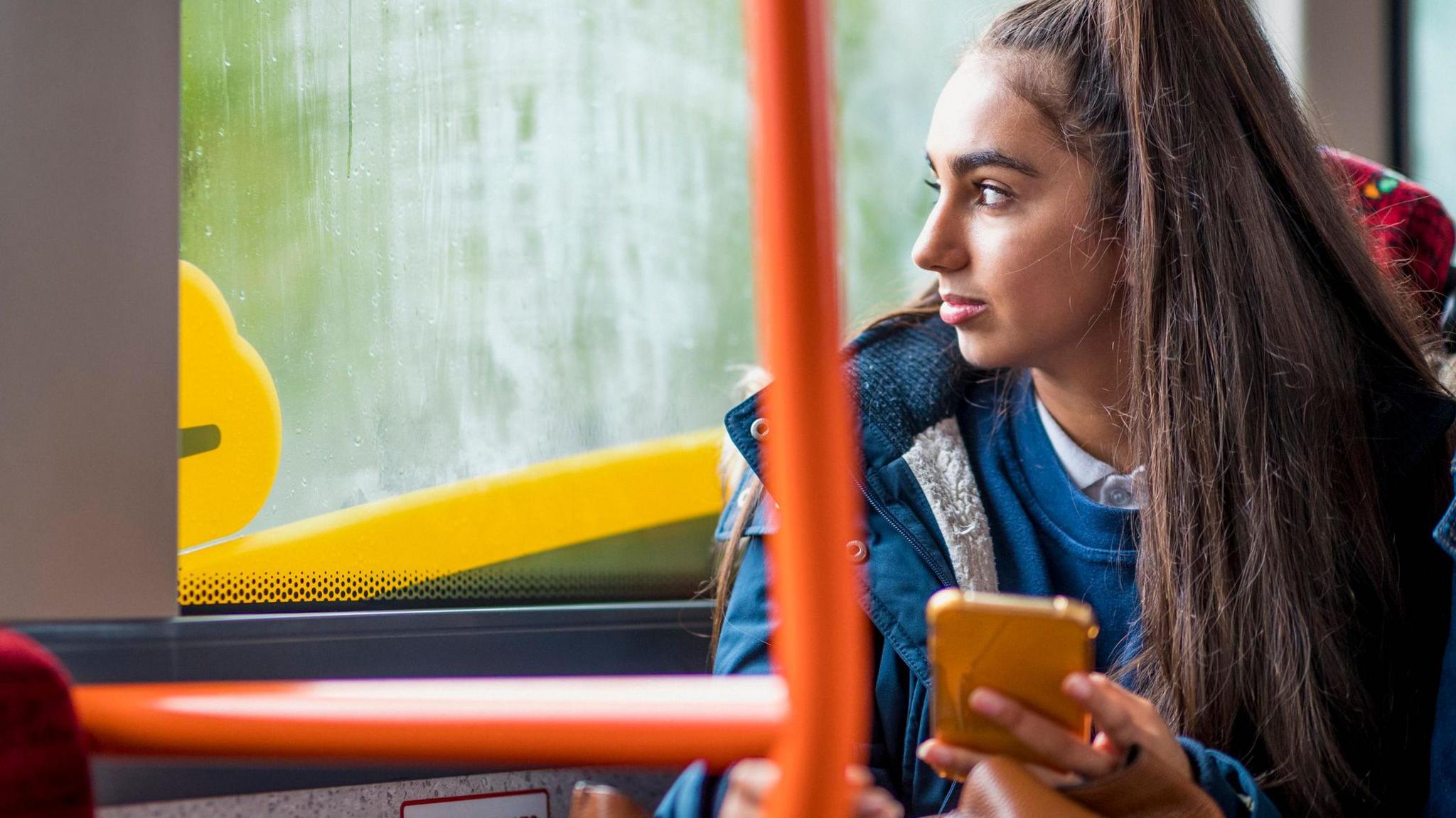How do passengers rate their buses?
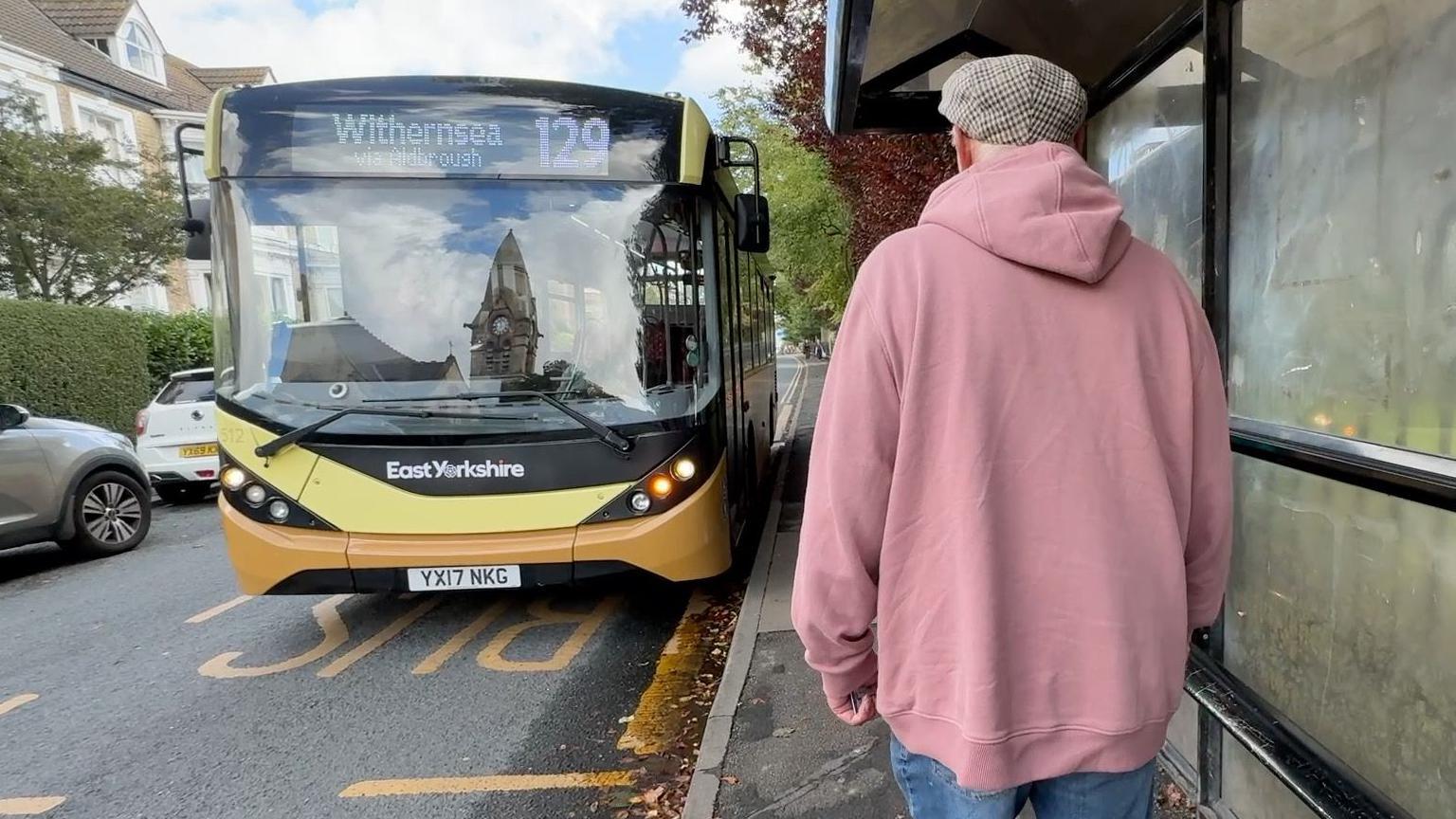
Ian Ross boards the 129 from Hornsea to Withernsea
- Published
After a report this summer highlighted a decrease in rural bus services and a government announcement of a £1bn investment to improve reliability, BBC reporter Crispin Rolfe took a bus trip through East Yorkshire to find out what passengers think.
I don't go on buses very often.
But today, I'm taking the number 24 Hull to Hornsea. It runs hourly now, I'm told later by East Yorkshire Buses managing director, Ben Gilligan.
Being under 66, there's a fare to pay [in England]. I've already got my £3 cash-in-hand; a pleasant fee in a cost-of-living beleaguered world.
And yet, it used to be £2.
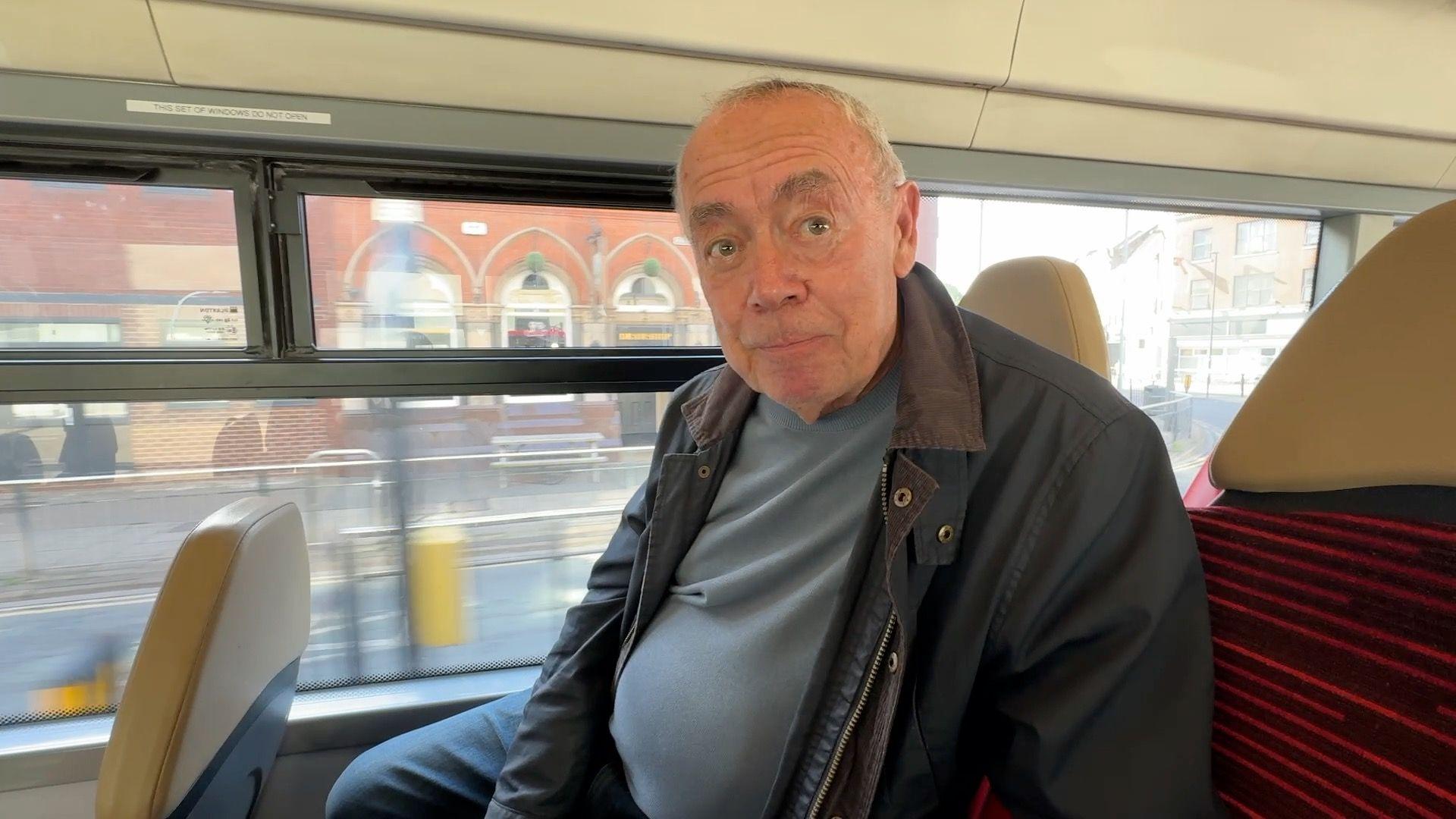
Tony Blakeston says bus users need more Sunday services
On the bus, most are travelling for free. It's a sunny day and Hornsea's seaside attractions are still evident. I introduce myself to the other passengers.
First to chat is Tony Blakeston. He's heading home having dropped his car for repairs.
He's not a regular and today's service exceeds his expectations, although he says he feels Sunday services are too infrequent.
It was in June that the County Councils Network published a report, external showing bus services decreased by 18% in rural areas between 2019 and 2024.
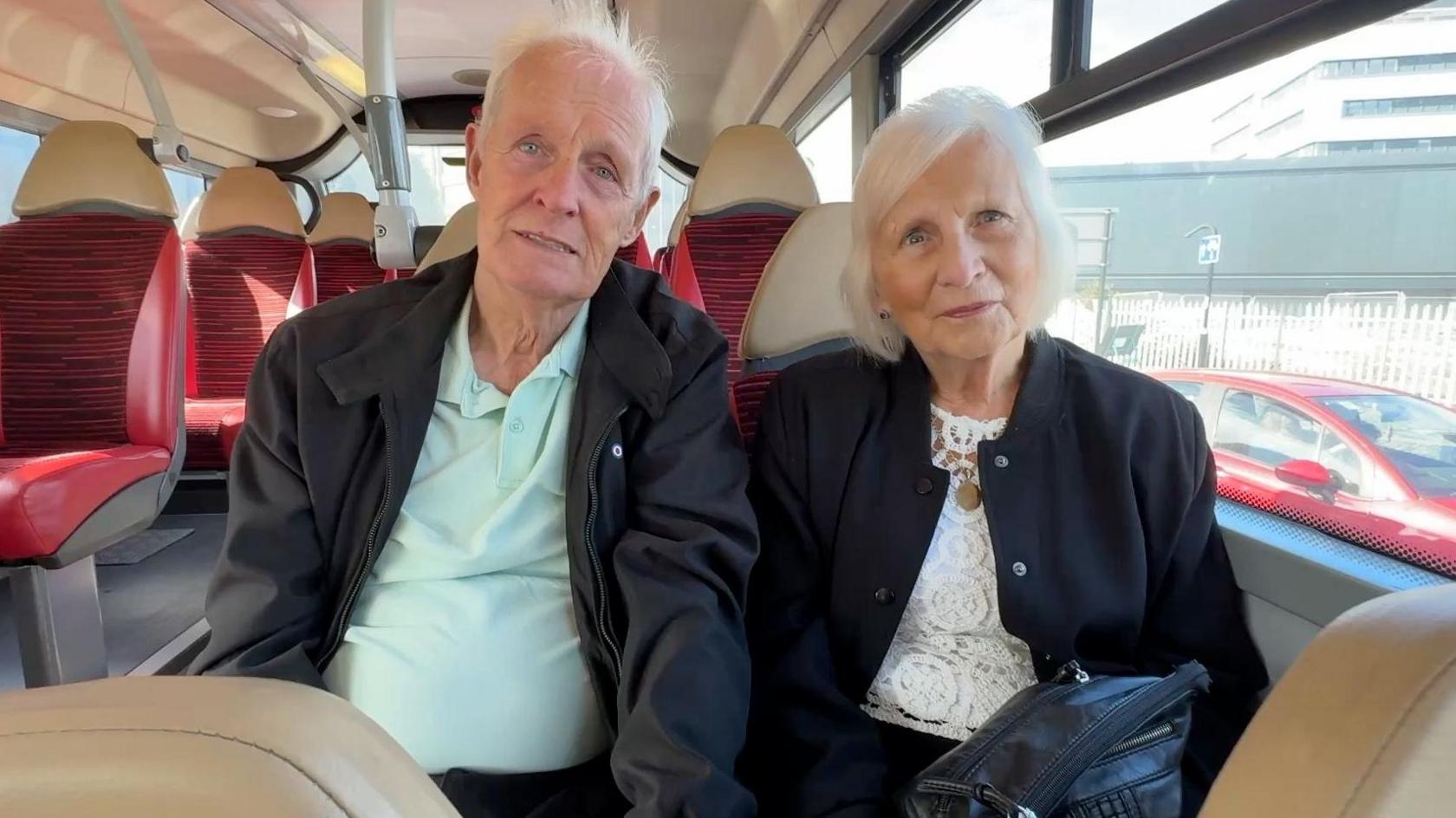
Jim and Doreen are off to Hornsea by bus for a free day out
Jim and Doreen Barratt are off on a seaside date - the allure of fish, chips and beer.
They've been married for 57 years.
"It works for us perfectly," says Jim. "Better than going in the car," echoes Doreen.
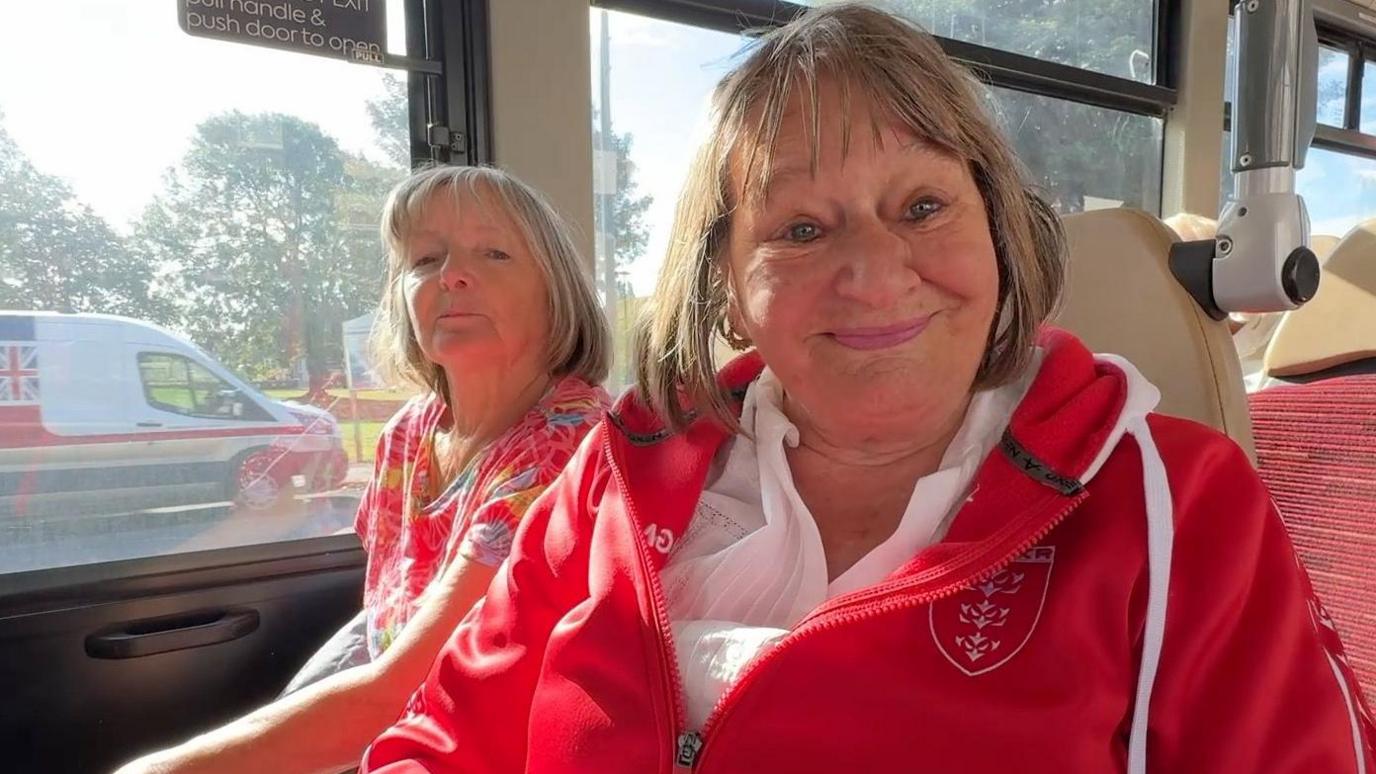
Susan Beetham uses her free bus pass to tour the county
As Hull's sprawl starts to recede along Holderness Road, another couple jump on board.
"We go to Scunthorpe, Grimsby, Hornsea, Bridlington – you name it," says Susan Beetham, proudly making the most of her free bus pass.
An hour later, I'm stepping off at Hornsea where the rosy picture of bus travel becomes thorny.
Christine Youngson needs a taxi to finish her trip to see family in Atwick.
It's just two miles away, but the 130 bus isn't coming anytime soon.
"There's only like three a day," she says. "My son-in-law brings me back."
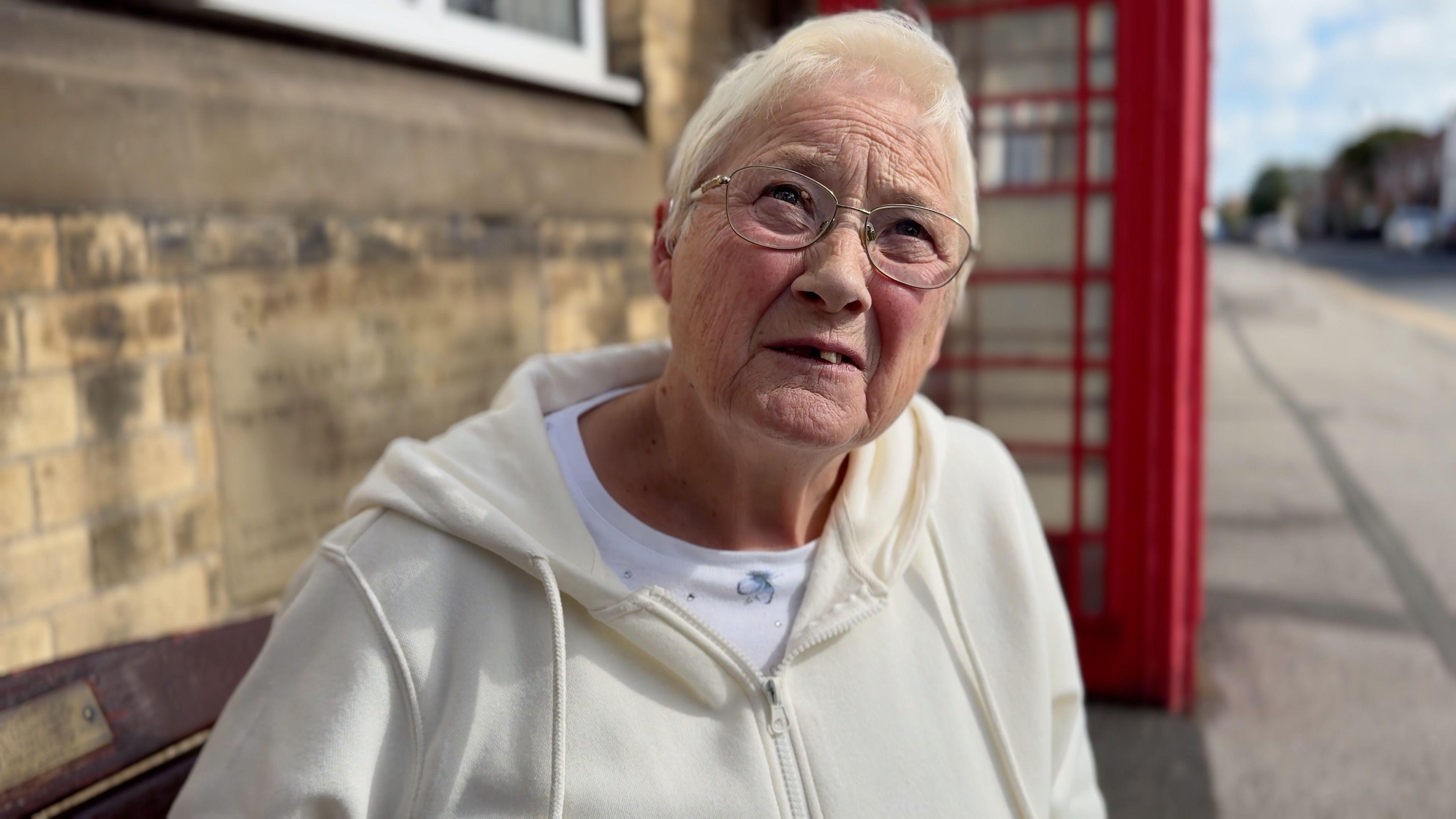
Christine Youngson, 78, has to rely on taxis or lifts to complete her journey
Coastal services to Bridlington or Withernsea are too infrequent to be relied upon, I'm told by others.
So I wait and catch one – the 129.
On it is Ian Ross. He is travelling to Roos but says he fears the timetable means "you miss connections."
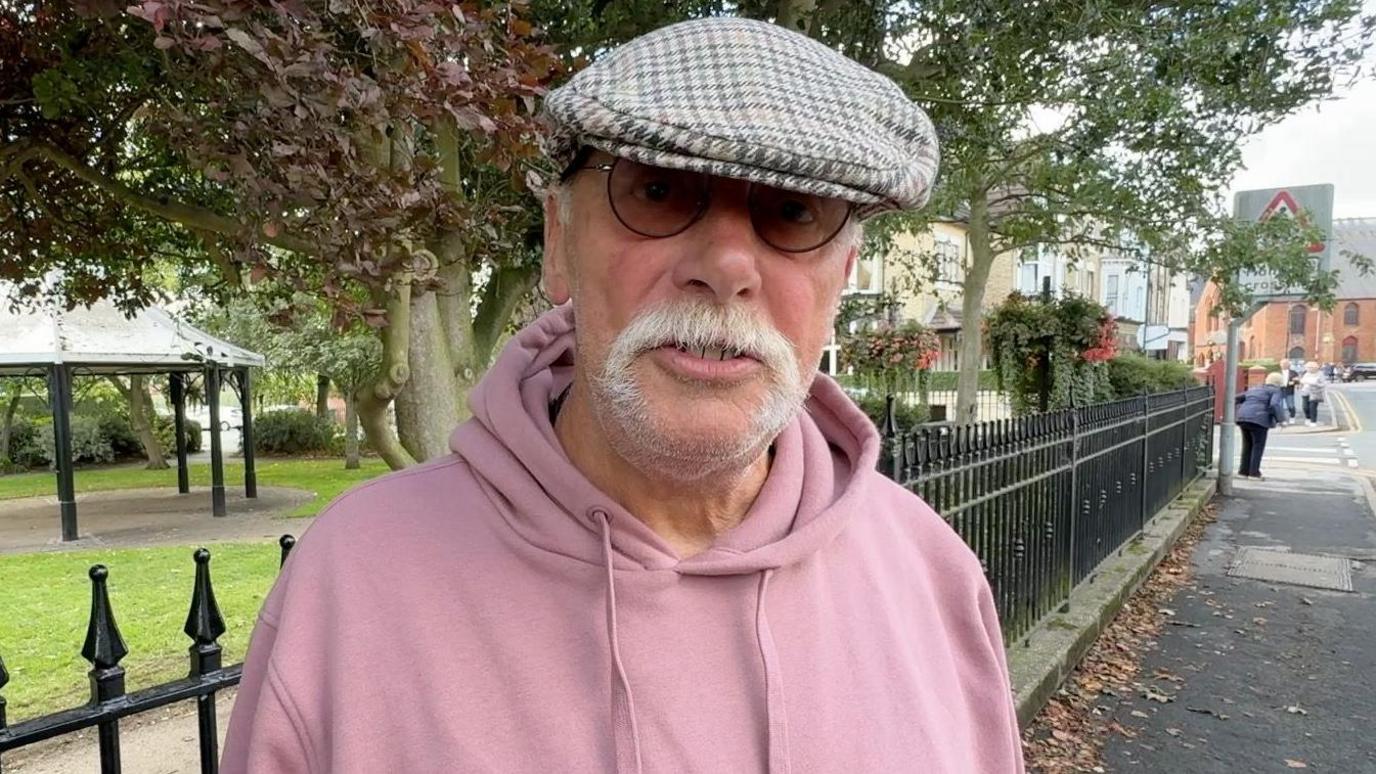
Ian Ross, 74, says a new timetable doesn't work for him
The 129 is a scenic but long trip, with the bus driver having to navigate Holderness's tinier coastal haunts.
Eventually, I arrive in Withernsea. It's a town blessed by half-hourly services to Hull - there for commuters as well as those seeking a blast of North Sea air.
Time then for the number 75 - my final bus on this five-hour round trip.
I'm on the top deck - along with a passenger having an expletive-ridden chat on their phone.
Still, I'm a journalist. I've heard worse.
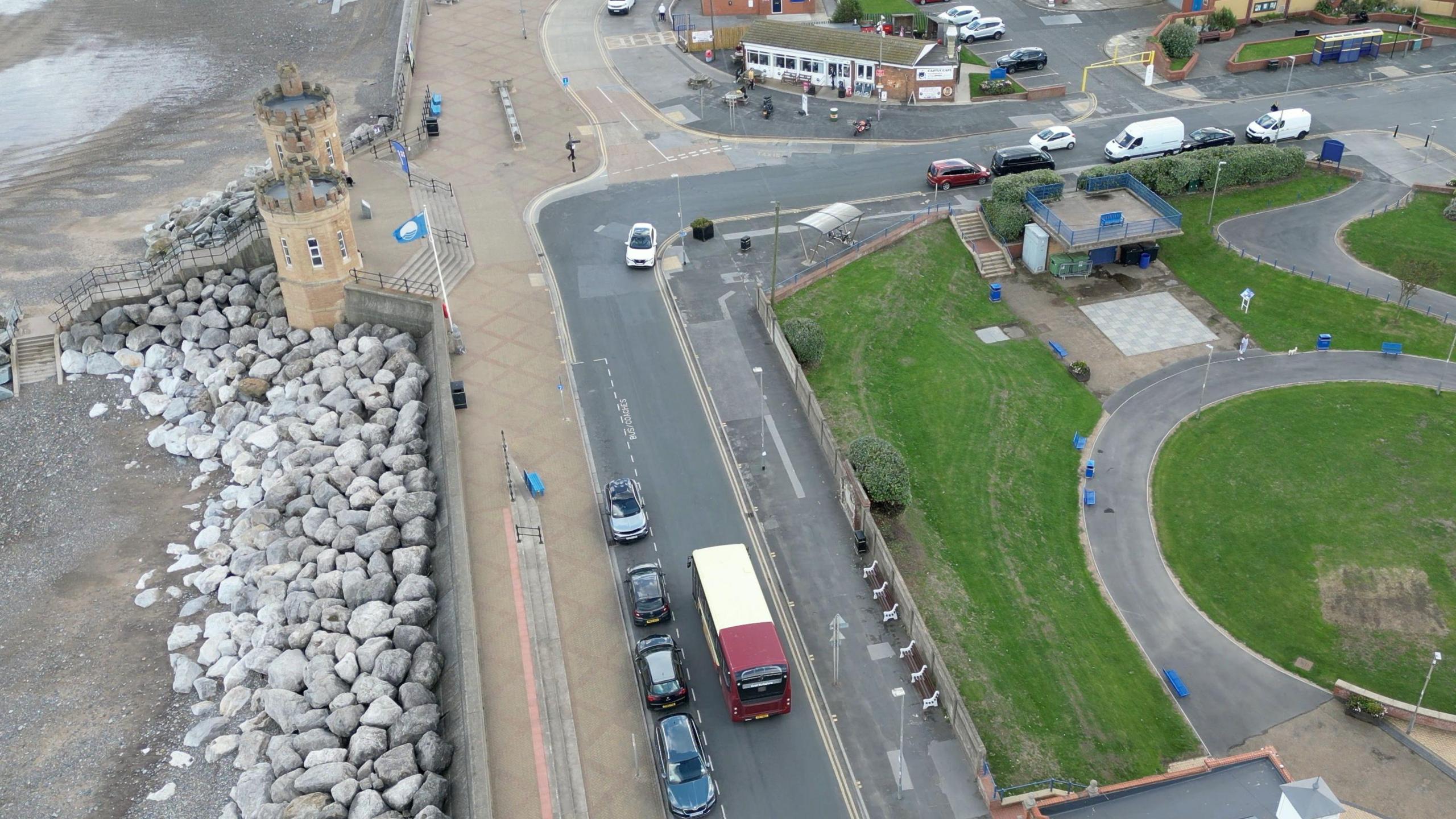
A bus approaches Withernsea's Pier Towers
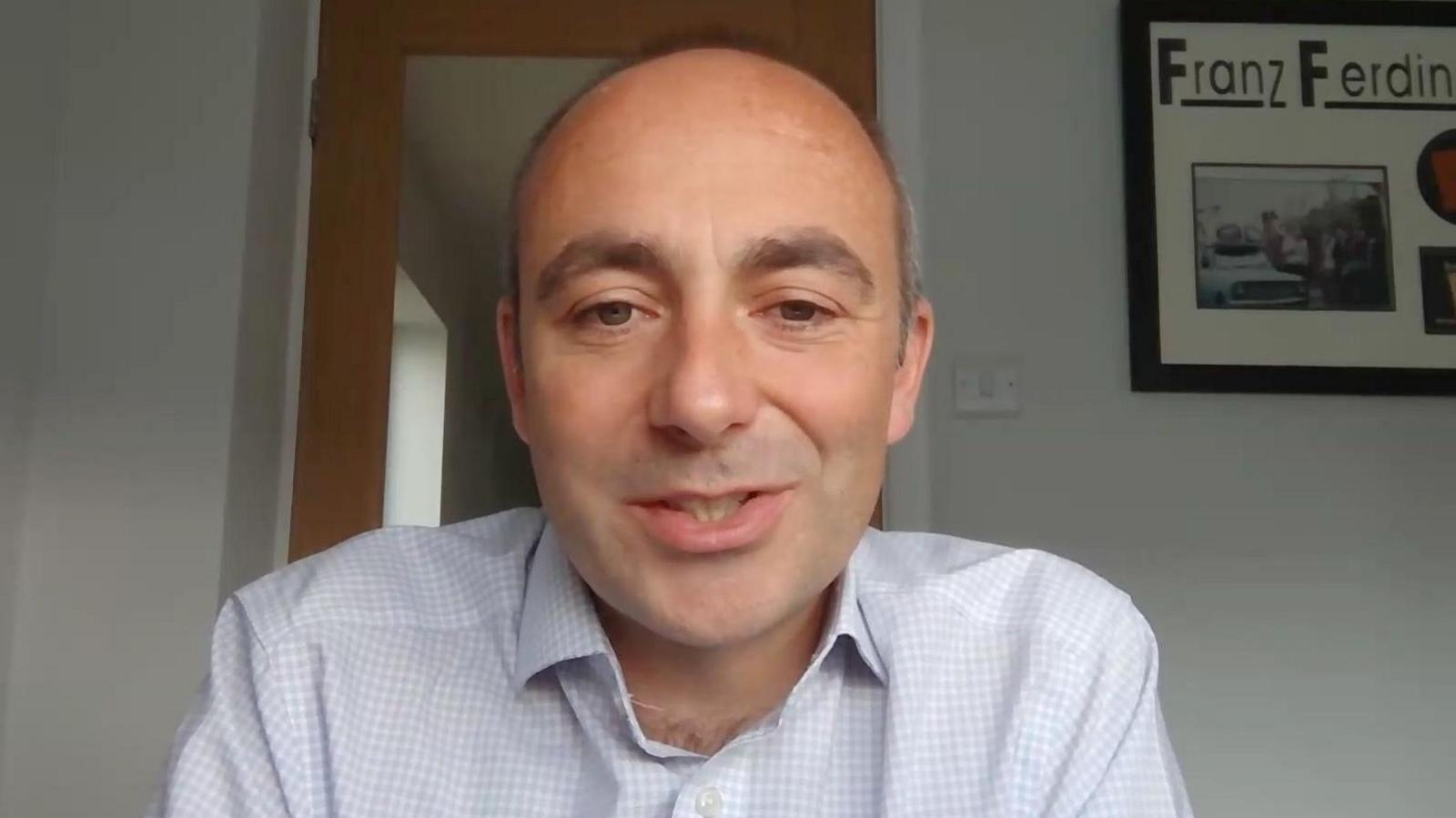
Ben Gilligan is the managing director of East Yorkshire Buses
Back in Hull, I speak to Ben Gilligan, managing director of East Yorkshire Buses.
He says recent government money has improved timetables, especially in previously underserved areas.
But, he wants long-term government funding guarantees to improve services.
Mr Gilligan says the fare cap increase from £2 to £3 had put passengers off.
"It may not sound a lot, but for some it's made a difference," he says.
Staff costs, including National Insurance increases are also factors for operators, he tells me.
The government's got back to me too, reiterating a promise to end scrapping bus routes at short notice and its £3 fare cap commitment until March 2027.
Overall then, it strikes me that East Yorkshire's bus service could be worse. But, in an age of Net Zero and Levelling Up, it could also possibly be better.
Listen to highlights from Hull and East Yorkshire on BBC Sounds, watch the latest episode of Look North or tell us about a story you think we should be covering here, external.
Download the BBC News app from the App Store, external for iPhone and iPad or Google Play, external for Android devices
- Published14 August
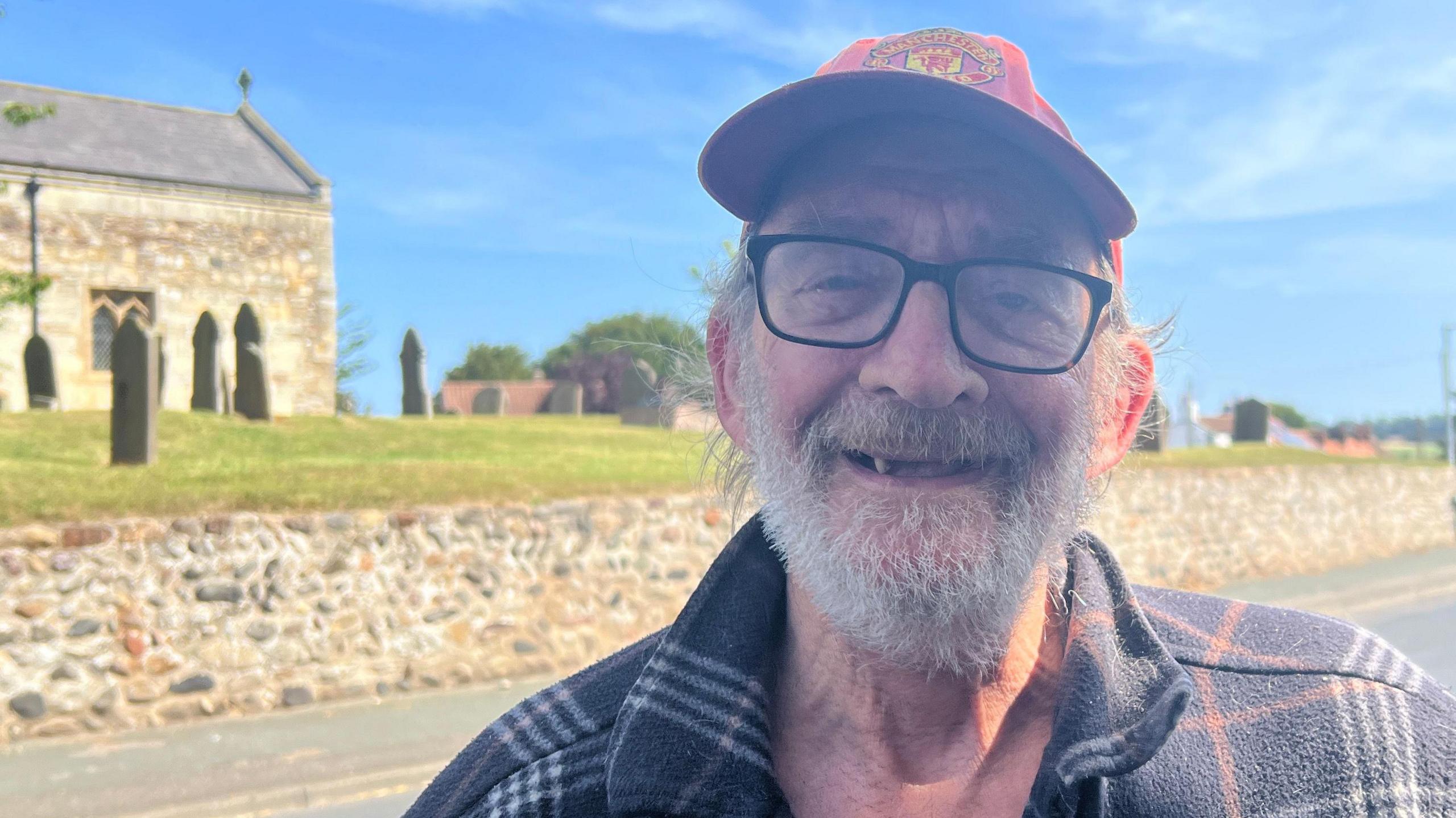
- Published1 January
